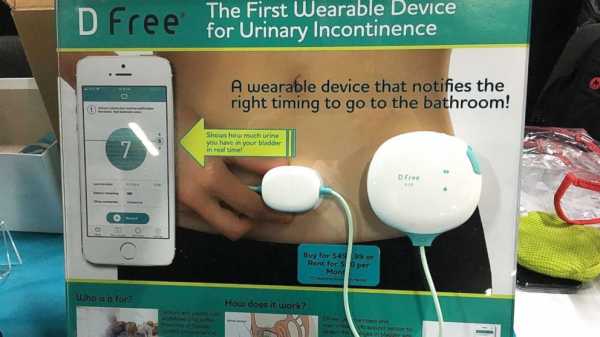
EKGs on the go
The electronics industry seems to believe it can make money convincing people they should be worried about their hearts. A number of products that take a simplified form of an electrocardiogram (EKG) are already on the market, the Apple Watch and Kardia among them. The WitCard, from WitMonki, is a credit card-size device that, by touching two thumbs and one index finger, sends results to one’s health care provider where, using the company’s WitDisplayer portal, EKG readings over time can be compared and appropriate action taken when necessary.
The battery-operated WitCard is undergoing trials for European Union certification and approval by the Food and Drug Administration, and could cost about $120.
Monitoring your energy
Ever worry about whether you are burning carbs or fats? Well, now there’s a way. Breathe into the Lumen device each morning to get a reading of your carbon dioxide concentration. Based on that, a phone app determines how yesterday’s sleep, exercise and eating choices affected your ability to burn carbs or fats. Lumen also promises to tell you if you have sufficient energy stores before exercising (and what to do about it), why you feel tired all the time and how to alter your diet to lose weight.
The company expects to ship its $249 device this August.
Monitoring your sleep
Philips, the giant electronics company, has become the latest company to soothe our worries about not getting enough sleep. Its SmartSleep, a $400 headband worn in bed, emits audible tones that supposedly detect and boost slow-wave, or deep, sleep — a time when breathing and heart rate are at their slowest.
The intent of SmartSleep is to keep the wearer in the deep-sleep zone longer; it does not increase the amount of time one sleeps or help someone fall or stay asleep. And, if you are older, you are out of luck, as the device is recommended for people between 18 and 50. Philips says the slow-wave activity declines as we age and becomes more difficult to detect.
(MORE: You have a right to your medical records, but does your hospital know that?)
A high-tech pill dispenser
Finally, an obvious problem: how to remember to take multiple drugs multiple times per day. And, of course, there is a just-as-obvious solution: automated drug-dispensing devices.
One of the latest products to attempt this is RxPense, which offers high-tech bells and whistles. The machine is loaded with hermetically sealed pill blister cards by a participating pharmacy. Once the card’s bar code confirms it’s the proper one and loaded into the machine, the patient is identified by facial recognition, an RFID bracelet or a PIN, and the proper pill pack, confirmed by the bar code on the packaging, is dispensed at the set time.
But wait, there is more. A camera records the dispensed pills and the patient’s removal of them. Missed doses are not dispensed.
The RxPense can be leased for $150 a month.
The device can’t tell whether the patient has actually ingested the pill. For that, pills will need to include a digestible RFID tag to track its trip through the body. The FDA approved Abilify MyCite, the first drug with a built-in tracking sensor, in 2017.
Don’t be surprised to see a device at next year’s show that can tell you where those tagged pills are.
Kaiser Health News (KHN) is a national health policy news service. It is an editorially independent program of the Henry J. Kaiser Family Foundation which is not affiliated with Kaiser Permanente.
Sourse: abcnews.go.com
0.00 (0%) 0 votes


































